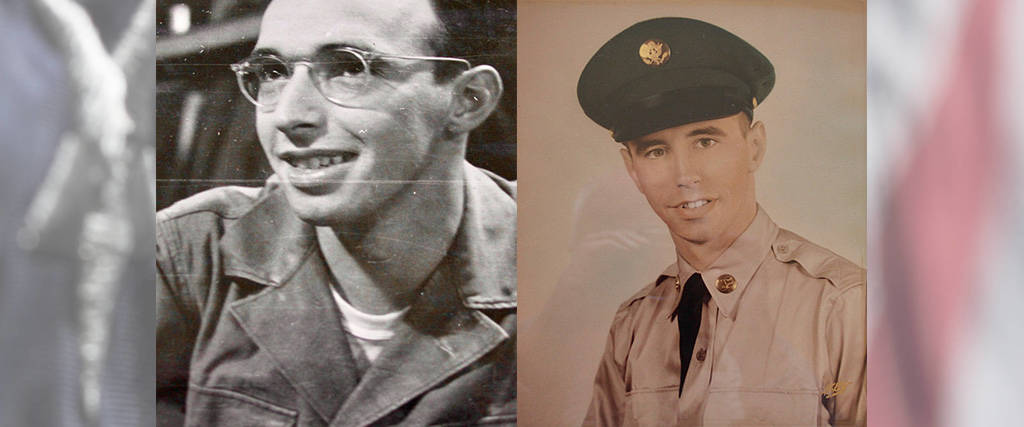U.S. Army Korean and Vietnam Wars Chicago and Bellwood, IL Flight date: May, 2019
By David Adams, Honor Flight Chicago Veteran Interviews Volunteer
Joseph (Joe) Ring grew up on the west side of Chicago with his younger brother by 7 ½ years, Frank, another brother, and two sisters. In 1952, Joe graduated from Harrison High School which was located in South Lawndale. Following his graduation, Joe worked as a draftsman for two years until he entered the Army in 1954. Joe says he volunteered for military service because he is “patriotic.” Little brother, Frank, graduated from Austin High School in 1960. By this time, Joe had returned from Korea and was a Chicago police officer. After his graduation, Frank worked as a copy editor in the Sports Department of the Chicago American for four years until he received his draft notice in 1964. An important portion of his two-year service was in Vietnam during the early years of the Vietnam War.
Joe volunteered for the Army and entered the service on March 30, 1954. He received Basic Training at Fort Leonard Wood, Missouri, followed by 18 weeks of specialized training at the Army Engineer School at Fort Belvoir, Virginia. After completing training, Joe shipped out for Korea from Washington state headed for an infantry unit in Korea. On board the troopship, a sergeant asked him to operate the “sound booth” playing records for the troop’s entertainment. He accepted since it was “a pretty good job” especially since he didn’t have to pull KP.
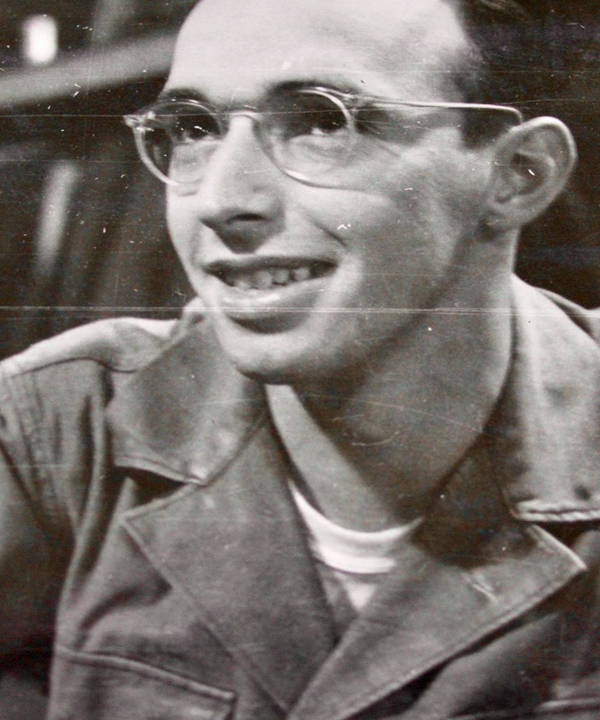
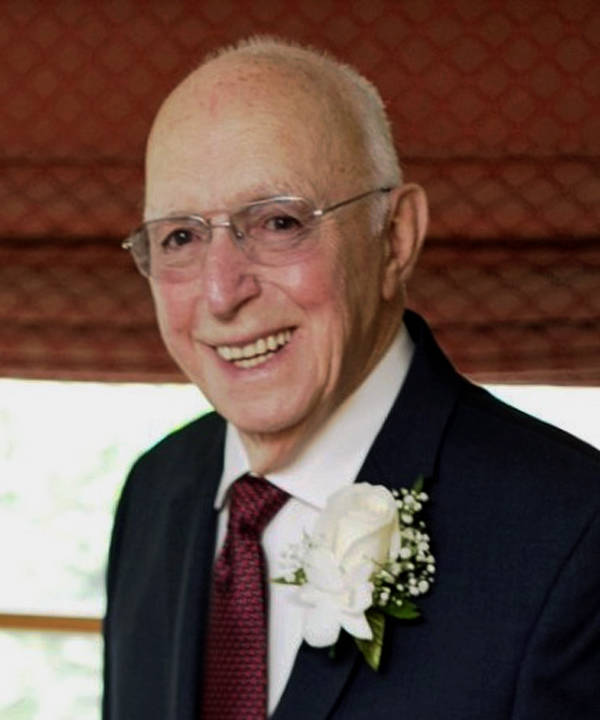
Joe disembarked at Taegu, Korea (now Daegu) in January 1955, a year and a half after the Armistice. His Korean tour of duty lasted 16 months until May 1956. His first duty station was near Seoul with combat engineers as a draftsman. His final assignment was at Pusan with another combat engineers’ group. Joe’s principal task at Pusan was to build a hospital in conjunction with the Australians. He was to ensure that the builders got all the equipment they needed and to be sure they would “do it right.” Joe remembers that Army chow was pretty good; he was advised by those who knew not to eat “off base” so he didn’t. But his brother did partake of street food during his service in Vietnam, with mixed reviews.
As luck would have it, Joe’s troopship returning him to the States in May 1956 had a sound booth which he knew well. He was not surprised to be assigned to the sound booth. And again, no KP! All in all, Joe sums up his military experience, “I really was fortunate always getting a good job in the Army.”
After his discharge from the Army on March 29, 1957, Joe joined the Chicago Police Department achieving the rank of detective. After eight years with the CPD, he secured a position as a salesman for Rockwell International. One of the dealers he called on was the Niles firm of R. A. Ness. The company developed and sold woodworking machinery. In the mid-1970s the company’s owner had decided to sell the business telling Joe that he preferred to sell to someone he knew – was Joe interested? Joe responded he’d like to think about it. When he asked his brother Frank if he was interested in buying R. A. Ness with him, Frank’s response was “Yes!” Together they owned and operated the business for 30 years from 1977 until they retired in 2007.
Joe also gained fame as an actor in Chicago. An ensemble member of The Studio Players, Inc. he appeared in more than 20 plays. He remembers especially appearing in “Our American Cousin,” the play President Lincoln attended on April 14, 1865 when John Wilkes Booth ended his presidency.
Joe and Geraldine have been married 56 years, raised two sons, and enjoy their three granddaughters and three grandsons. Geraldine says their boys could live anywhere “as long as it was within 10 minutes of their home in Edgebrook.” The family thrives on athletics and one granddaughter coaches a girl’s high school team.
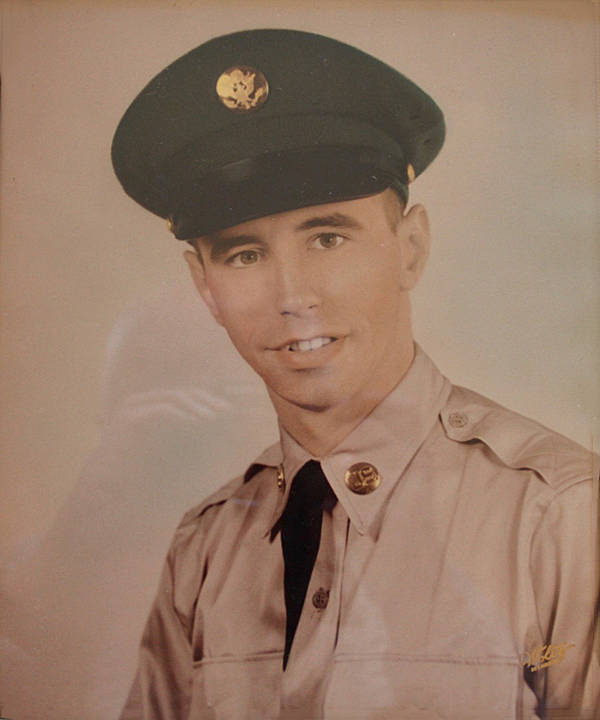
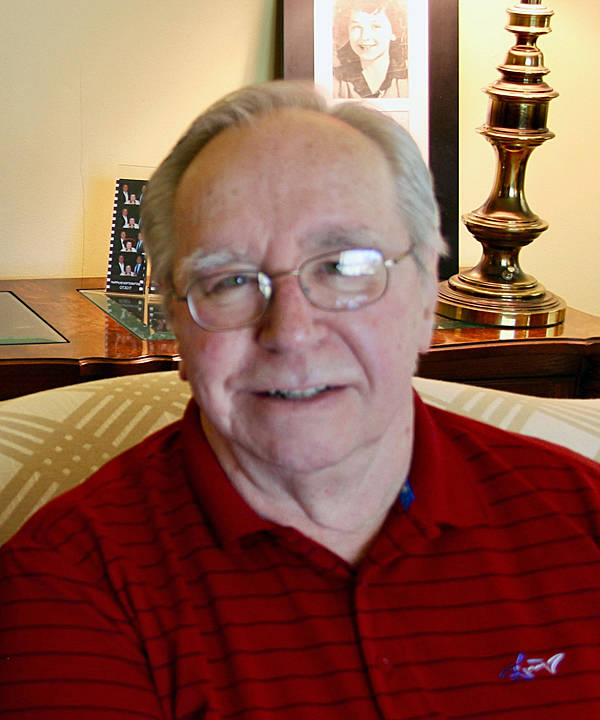
Frank was drafted into the Army in 1964 for, in his words, “a two-year career.” He achieved the rank of Spec 4 (E-4) by the time of his discharge. He took his Basic Training at Fort Knox, Kentucky, followed by Army Signal School at Fort Monmouth, New Jersey. That six-month course qualified him as a fixed plant carrier repairman. When he signed into Fort Irwin in Barstow, California, he discovered that the post had no job available in his MOS. So, he worked in the personnel department. Shortly, he transferred to Fort Bragg, North Carolina, to begin training on what he remembers as “eight huge, state-of-the-art communications vans” scheduled for installation in Vietnam. Training at Fort Bragg also involved a training assignment at Camp Lejeune, North Carolina. Frank frequently wrote letters home. In October, 1965, he wrote, “We’ve got it pretty nice here at LeJeune. We’re working shifts of 8 hours on duty and 24 off. And the duty simply consists of sitting in the air-conditioned van playing cards, listening to the radio and drinking beer.” He says today, “I had forgotten what a ne’er-do-well I was.”
From Fort Bragg, the vans were shipped by rail to the West Coast where they were loaded on a troop transport ship, the USS General LeRoy Eltinge (AP-154). The ship transported about 2,000 soldiers. Unlike his brother Joe, Frank got KP duty onboard. He laments that he washed 2,000 metal trays 3 times daily during the 23-day voyage. He was glad to disembark in December, 1965, at the Vietnamese city of Vung Tau, a city in the Delta, just a short distance from Saigon.
Frank’s assigned unit, the 362nd Signal Company, had deployed to Vietnam in March of 1962 as part of the 39th Signal Battalion. He served in the 506th Signal Detachment of the 362nd. Battalion history teaches that the motto during that period was “Hang Loose With the Deuce.” The 362nd was deployed from the Delta to the DMZ, providing long range “troposcatter,” a method of communicating with microwave radio telephone communications throughout South Vietnam. This was essential for secure communication from base to base. Frank’s communication van was slated for the city of Dalat. Dalat known as “the city of eternal spring” for its distinctive temperate climate. It is located in the Central Highlands and was developed as a resort by the French in the early 1900’s. He regrets having visited this resort only once before his enlistment period was up in May, 1966.
Frank lived in a sandbagged bunker at the Tan Son Nhut Air Base, near the city of Saigon. The Viet Cong attacked Tan Son Nhut on April 13, 1966, with devastating results: eight persons including seven American servicemen were killed, 201 wounded, and multiple airplanes and helicopters were destroyed. As luck would have it, Frank had flown down to Vung Tau the day before the attack and returned to what he describes as “a shrapnel – riddled” air base.
Frank remembers that the food served at Tan Son Nhut was pretty good. One of the Army contractors lived in Saigon and invited Frank to his home for a “home cooked” meal. His host employed a cook skilled in the French technique—he enjoyed “great food” that night. Frank frequently ate in Saigon where, because of the French influence, the restaurants were equally great. From time-to-time he and his buddies ate street food. He came to like the “steak sandwiches” with strips of grilled meat served on a French baguette. The sandwich was called “banh mi” in Vietnamese. After some more experienced soldiers told him the grilled meat was rat not steak, he stopped ordering it.
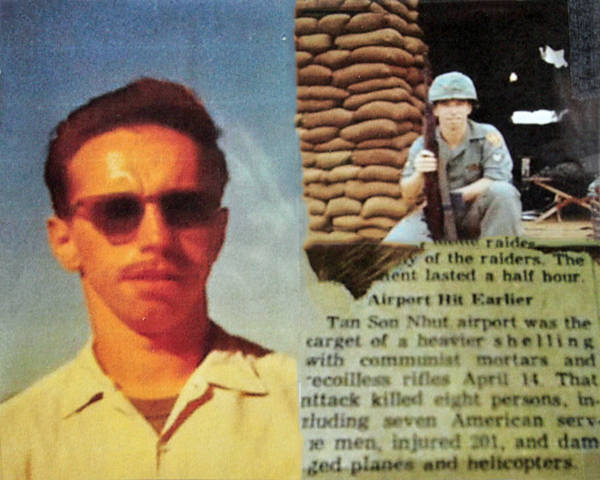
Frank’s tour was not “all work and no play.” The port of Vung Tau was a popular R&R site due in large part to its beaches. Visits from American entertainers and celebrities occasionally happened, including one by a Playboy bunny who was flown from base to base in her own Army helicopter emblazoned with the famous logo. Regrettably, he did not meet her.
After his discharge in May, 1966, Frank returned to the Chicago American and his previous job as a copy editor. He stayed on at the paper and its successors until its closure in 1974. He then worked as an advertising copy editor before joining Joe in buying R. A. Ness in 1977.
In retirement, Frank enjoys bowling in what he calls “his spare time” and has been in the same league for some 20 years. He is a fan of all Chicago teams except the Cubs. Frank travels, having visited Europe, Africa, Hawaii, Alaska, Mexico, and the Caribbean Islands. Among his favorite cities is Las Vegas and, when pressed, he refused to reveal his betting system.



